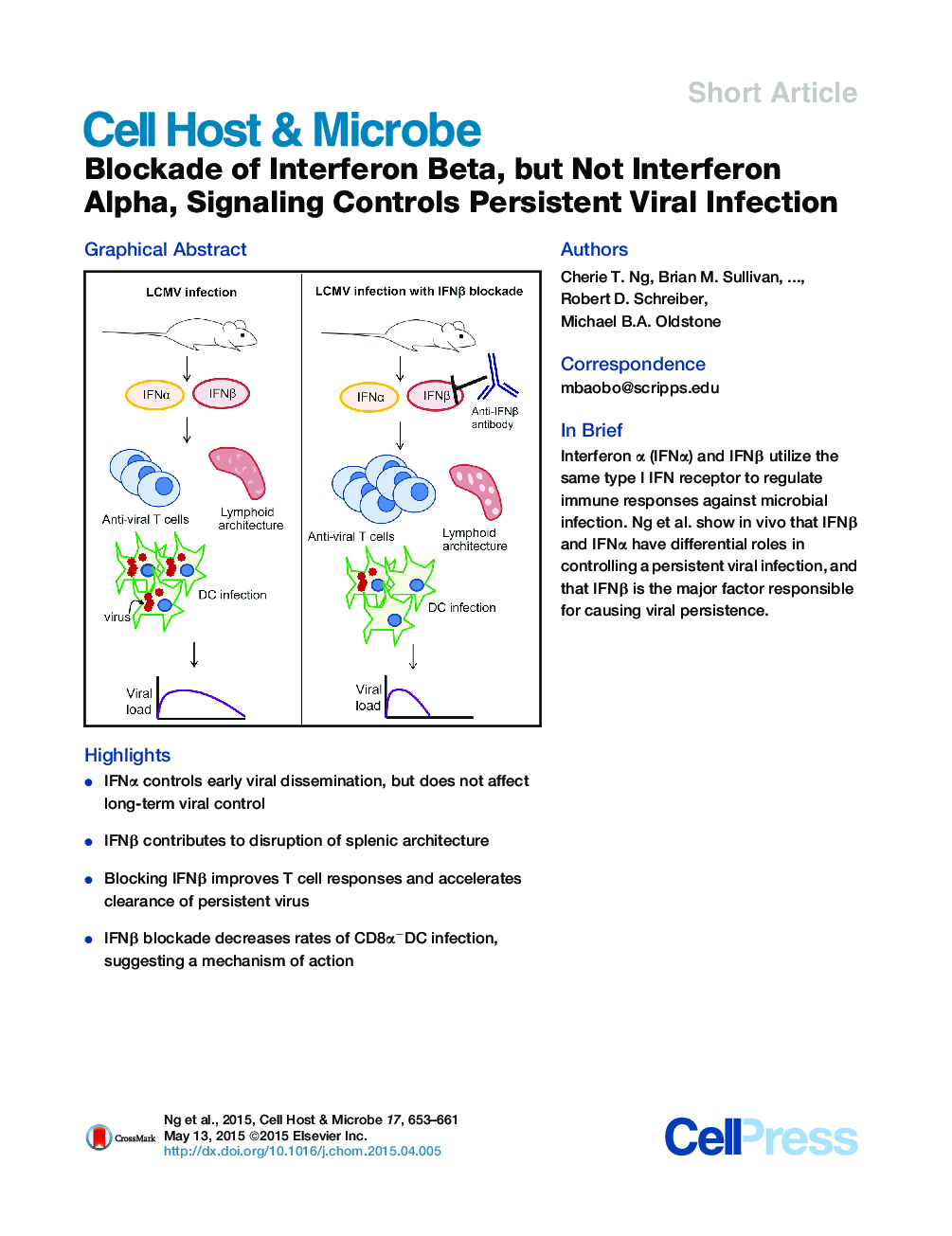| کد مقاله | کد نشریه | سال انتشار | مقاله انگلیسی | نسخه تمام متن |
|---|---|---|---|---|
| 4360976 | 1301334 | 2015 | 9 صفحه PDF | دانلود رایگان |
• IFNα controls early viral dissemination, but does not affect long-term viral control
• IFNβ contributes to disruption of splenic architecture
• Blocking IFNβ improves T cell responses and accelerates clearance of persistent virus
• IFNβ blockade decreases rates of CD8α−DC infection, suggesting a mechanism of action
SummaryAlthough type I interferon (IFN-I) is thought to be beneficial against microbial infections, persistent viral infections are characterized by high interferon signatures suggesting that IFN-I signaling may promote disease pathogenesis. During persistent lymphocytic choriomeningitis virus (LCMV) infection, IFNα and IFNβ are highly induced early after infection, and blocking IFN-I receptor (IFNAR) signaling promotes virus clearance. We assessed the specific roles of IFNβ versus IFNα in controlling LCMV infection. While blockade of IFNβ alone does not alter early viral dissemination, it is important in determining lymphoid structure, lymphocyte migration, and anti-viral T cell responses that lead to accelerated virus clearance, approximating what occurs during attenuation of IFNAR signaling. Comparatively, blockade of IFNα was not associated with improved viral control, but with early dissemination of virus. Thus, despite their use of the same receptor, IFNβ and IFNα have unique and distinguishable biologic functions, with IFNβ being mainly responsible for promoting viral persistence.
Graphical AbstractFigure optionsDownload high-quality image (197 K)Download as PowerPoint slide
Journal: - Volume 17, Issue 5, 13 May 2015, Pages 653–661
